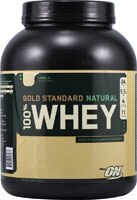I’ve been protecting my knees, particularly my arthritic left knee, so about two months ago I stopped doing cardio. Sure, I could do some low-impact cardio, but I’m not convinced that cardio is all that important.
Don’t get me wrong. I do think getting the blood moving quickly through the body from time to time is a good thing to do, but I think cardio is highly overrated as a fitness practice.
Cardio, after all, is just another way to work your muscles.
It’s not like your heart or lungs are going to get any bigger. You’ve heard of a physiological problem called “enlarged heart” right? That’s a disease, not a fitness goal. Your heart and lungs are as big as they should be, and you’re not going to make them any bigger.
So what happens when you do cardio, then? Why do you seem to have increased heart and lung capacity?
Well, you are making your muscles more efficient. That’s why your heart and lungs can work more easily, because your muscles are better able to put the oxygen they receive to use, thus easing the burden on your cardiopulmonary system.
Now if you buy into the idea that more movement means more calorie burn — and there is no reason I know of not to buy into that idea — then you may perceive that more cardio is good if you are trying to lose fat. I agree.
But of all the things I do to work out, cardio is the least fun for me. I don’t dig all the jumping around. Sometimes, yeah. Like this weekend I actually decided to give the knee a test and did the Kenpo Cardio X from the P90X Plus series. I had not done this workout in a couple months, so I expected to fall pretty flat, but, you know what? Nope. It went well, one of the best iterations of that workout for me.
I suppose I was okay with the workout because I’ve continued to work my legs, arms, chest, even without doing cardio, so the efficiencies my muscles have realized continue to be in place. Basically, I’m staying fit.
As I was reading through Tom Venuto’s post on too much cardio, I notice that he makes mention of the different schools of thought on weight loss, and it comes back to the premise of my last post. You gotta do what’s right for you.
Here’s Tom’s conclusion in the article, which makes plenty of sense: “What you should avoid is doing hours and hours of cardio every day in an attempt to lose weight, while slashing calories to very low levels at the same time. That is worse than starvation dieting alone. Your goal is to find the right balance between burning calories and cutting calories and avoid extremes on either side [emphasis added].”
This makes so much sense. If you are doing a lot of cardio, you need extra energy and also the building materials to repair your body, so, of course, you need to eat appropriately! Find the right balance.
Now, having agreed with Mr. Venuto, I also have to say: Too much cardio? Whatever.
I think it’s interesting to read about such things, and I think it’s necessary to learn all you can about fitness and nutrition, but as a regular guy or gal, i.e. not an elite athlete or bodybuilder, don’t get wrapped around the axle about everything you read. Don’t use “too much cardio lowers your metabolism” as an excuse to skip a workout. Do use it as an excuse to examine your current fitness practices. Are you feeling rundown all the time? You probably need to eat more. Simple. Hey, maybe you are doing too much cardio. Substitute in some resistance training.
Set goals and work toward those goals. Continue to learn what science says is right and implement what your body says is right. Fitness is a lifestyle.
Do you love cardio? Do it! Do you love eating less. Do it! Resistance training? Do it! Love ’em all? Do ’em!
But, dammit, do something. There are no magic pills.
It really boils down to this for me: Do I feel better while I’m reaching my fitness goals? All good. Not feeling so great or not reaching the goals? I need to make some adjustments.

